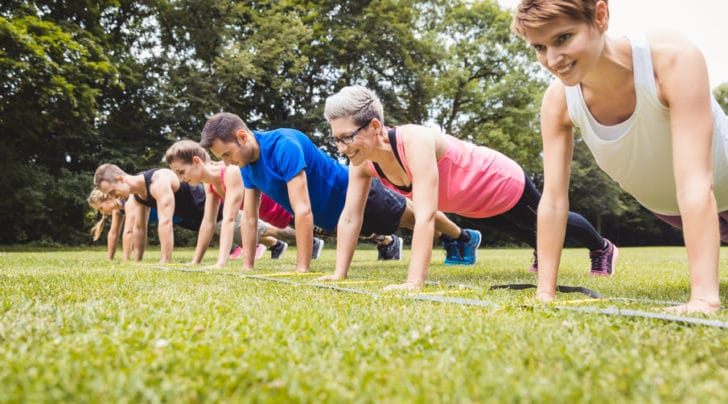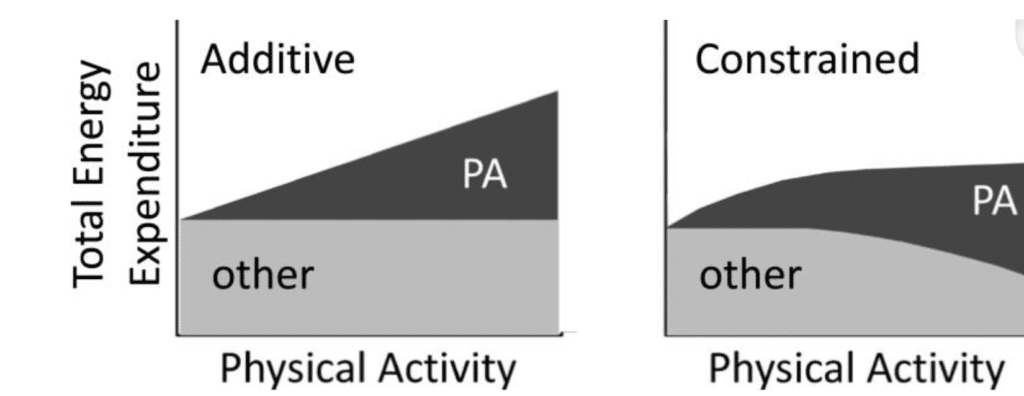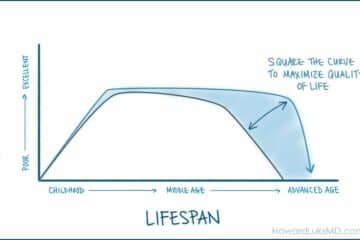
Exercise — metabolism — and weight loss
Losing weight frustrates many. Even those who can lose weight far too often find that they regain those lost pounds. Why is that? Is our brain working against us? What can we do to try and maintain that weight loss?
Evolution and weight loss
Evolutionary drivers directly impact our ability to lose weight and maintain weight loss. From an evolutionary perspective, our brain’s reaction to stressors such as weight loss is not different from other species. Evolutionarily speaking, we are meant to grow, mature, and reproduce. Our brains deepest, most evolutionarily well-conserved regions are set up to make sure that we maintain an energy balance to reproduce.
Enter the hypothalamus. This small region of our brain regulates many of our body’s processes, including hunger. The hypothalamus can exert a lot of pressure to maintain an adequate energy intake. Fighting against the drive exerted by the hypothalamus is often a losing proposition. In times when food is not plentiful, or other stressors such as exercise are present; the hypothalamus will partition your energy expenditure. This means that it will shuttle the available energy to systems that require it (such as the brain), and it will decrease your body’s overall energy demand (resting metabolic rate).
The contrained total energy theory
In 2016, Herman Pontzer proposed the constrained total energy theory of metabolism. The theory states that our body, and more specifically, our brain, will adjust our metabolism such that our daily caloric expenditure will stay in a very narrow range, regardless of how much we exercise. Basically, you will burn nearly the same number of calories whether or you are exercising heavily or not.

How can that happen? When you exercise, you’re burning more calories. It seems bizarre, right?!? Well… our brains regulate the amount of energy that goes to various physiological systems in our body. It will regulate how much energy it spends on growth, reproductive system, gastrointestinal system, musculoskeletal system, immune system, brain, and so on. Therefore, in the constrained total energy theory, if we are exercising or taking in fewer calories, then our bodies will adjust the amount of energy it spends on some systems to be able to provide energy to other systems. That can result in a shorter stature, as we see in some tribes in Africa. That can also result in less energy to our immune system, etc. That’s why Herman Pontzer, in his most recent book, found that the Hadza in Africa, despite walking 15,000 steps a day to find food, spend the same amount of energy to do that as the average American who walks 3,000 steps a day.
Dr. Pontzer found that our resting metabolic rate- the energy we need to spend to keep the lights on and maintain our daily functions will increase (to a point) with low-level physical activity such as walking… but after a certain amount of activity, our resting metabolic rate becomes range bound and does not increase further.

The figure below shows schematics of the Additive total energy expenditure and Constrained total energy expenditure models. In Additive total energy expenditure models, total energy expenditure is a simple linear function of physical activity (PA). The more you move, the more energy you expend. In the Constrained total energy expenditure model, the body adapts to increased physical activity (PA) by reducing energy spent on other physiological activities, maintaining total energy expenditure within a narrow range.

Published online 2016 Jan 28. doi: 10.1016/j.cub.2015.12.046
Perhaps the constrained model explains why many women who exercise heavily have trouble getting pregnant. Perhaps it explains why some who exercise too much can get the flu easier than others. More research in this area will provide further insights.
Exercise and weight loss: friend, foe, or both?
When we exercise, we burn more calories. No argument there. If you maintain that exercise, you will lose weight if you do not start eating more. The issue is that if you maintain your exercise level, and continue with the same caloric intake, eventually, you will stop losing weight. This is what happened to the competitors in The Biggest Loser. They lost extraordinary amounts of weight. But long term studies of this group by Dr. Kevin Hall and others revealed that they all put weight back on, and some put on more than others. That is because their resting metabolic rate adjusted downward. Even after the competition, their metabolic rate stayed lower years later.
Your hypothalamus, that little area in your brain, will sense that you are more active and require more energy to be spent on your muscles. The hypothalamus will also limit the energy expenditure in other physiological systems in the process of maintaining your metabolic rate in a steady state. Your hypothalamus constrains the amount of energy you have to spend… and it drops your resting metabolic rate so that you require less energy (calories) to maintain your normal daily functions.
Therefore, if your resting metabolic rate resets to a lower rate, and you continue overeating, or you cut back on your exercise, then you will gain back the weight you lost when you started exercising.
Now… this is not a reason not to exercise :-). I would rather be overweight and metabolically healthy than average weight and in poor metabolic health. As most research papers reveal, assuming you do not increase the amount that you eat— exercise is a means to early weight loss.
You will lose weight as you start a new weight loss or exercise program. Based on the constrained theory, low-intensity exercise will raise your resting metabolic rate. The issue is that it only raises to a certain point. More exercise will not increase your metabolic rate further. You will, however, burn more calories, but at the expense of energy to be spent on other systems.

As Dr. Hall pointed out in the article I referenced above… exercise does appear to contribute to your ability to maintain weight loss. The reason why it contributes may not be entirely apparent. Meaning that it may not be the calories you burn… it may be due to another variable such as eating less or improved satiety due to exercise.
As I have pointed out in many other notes I have written here. There is no magic weight loss diet, supplement, or regimen. Exercise alone is not enough to sustain a weight loss program. Weight loss requires a caloric deficit. It would be best to eat less than you burn off each day. Kevin Hall has shown that people can lose weight on low carb diets, high carb diets, high protein, low-fat diets, etc. A diet that worked for others may not work for you. Starvation diets do not work. Your hypothalamus will convince you to eat eventually. Find a set of whole food groups that you enjoy. Eat slowly, eat less, eat more veggies, eat more fiber, enough protein and keep moving.












